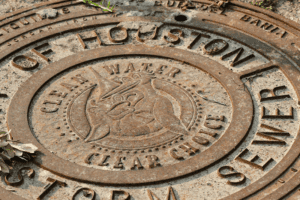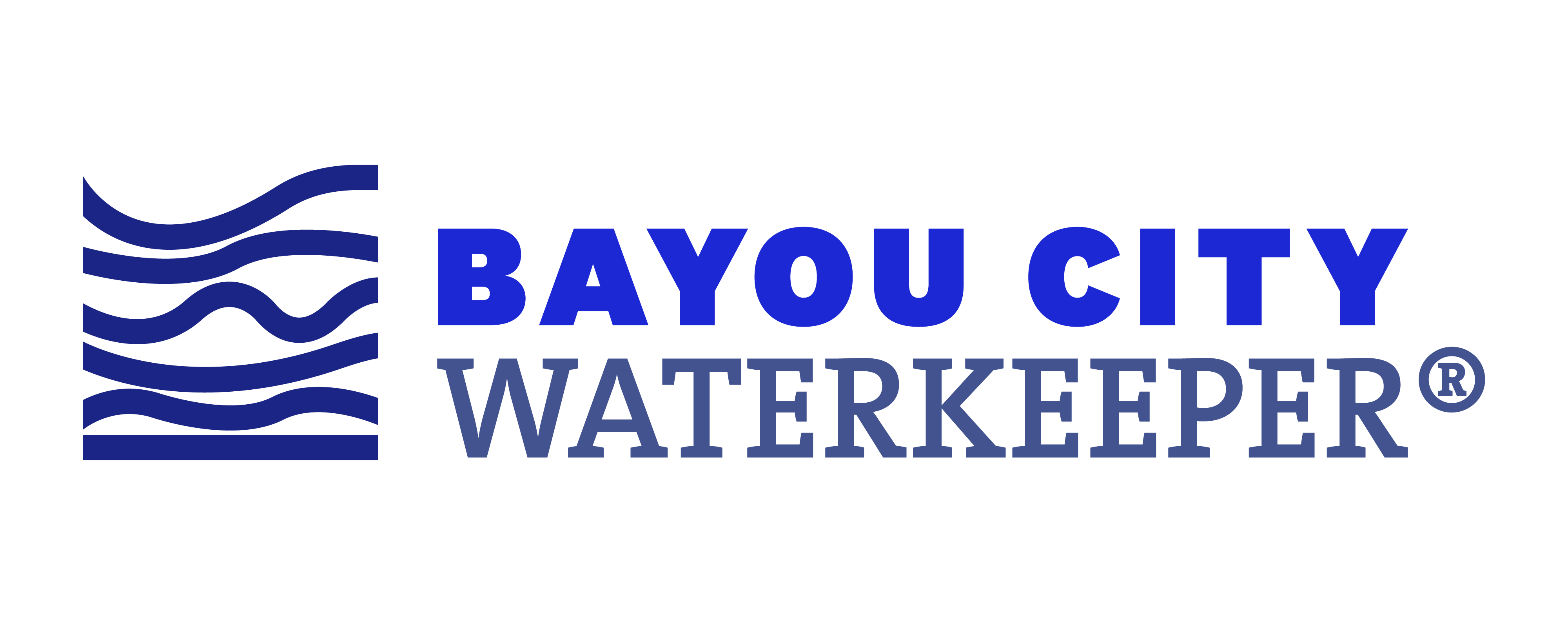 Big news for Bayou City Waterkeeper and local waterways! On July 24th, nearly a year to the day since we served our notice of intent to sue, the City of Houston voted to adopt a $2 billion consent decree with the EPA and State of Texas. This begins a 15-year process of addressing wastewater pollution and failing infrastructure across the entire city.
Big news for Bayou City Waterkeeper and local waterways! On July 24th, nearly a year to the day since we served our notice of intent to sue, the City of Houston voted to adopt a $2 billion consent decree with the EPA and State of Texas. This begins a 15-year process of addressing wastewater pollution and failing infrastructure across the entire city.
While there are still questions to be answered, this is an important victory for clean water. And we couldn’t have done it without all of you.
For decades, as a result of the failure to maintain its aging infrastructure, Houston allowed raw or partially treated sewage to be discharged from its wastewater treatment and collection systems into our public waterways throughout the Houston area. This has caused significant problems for the health of all our waterways, and created long-standing inequities in our most vulnerable communities. After years of delays and no clear plan by the City of Houston to address these well-known problems, we filed a citizen suit in September 2018 to improve water quality for all residents across Houston and throughout the region.
The Initial Announcement
When the consent decree was first announced at a press conference on July 9th, it was clear that Mayor Turner and City Attorney Lewis had no intention of releasing the details to the public. Joined by supporters like you, and allied organizations across Houston, we called for transparency and the opportunity for public engagement before City Council voted to adopt the consent decree.
At hearings before City Council on July 9th, 16th, and 23rd, Jordan Macha, Executive Director and Waterkeeper of Bayou City Waterkeeper, called on Mayor Turner and City Council to give the public a chance to review and understand the consent decree before holding a vote.
“Given the breadth of this agreement, we implore you to make clear that public input matters in this process. This is a once-in-a-generation opportunity to address historic inequities, and improve water quality and public health across Houston. The public must be given the tools and the time to weigh in,” noted Macha. “Twelve hours or a week is not enough time to comprehensively review and understand more than 150 pages of technical information.”
Joining Bayou City Waterkeeper’s call for public participation at the July 16th public session were representatives from Air Alliance Houston, the Coalition for Environment, Equity, and Resilience (CEER), Environment Texas, and Public Citizen. Iris Gonzalez, CEER’s Coalition Director, asked the Council,
“Can you tell us how the poorest communities will not be overburdened by the rate increase?… Can you describe the types of projects that will be implemented with this $2 billion?… Can you explain how the consent decree will reduce Houston’s contributions to climate change [and] prepare us to be a 21st century city that is more resilient? If not, then you’re not ready to vote.”
 Over 50 community advocates and Houston residents submitted letters to Council Members and Mayor Turner, urging for transparency and public participation in the consent decree process. In a letter to the Mayor and Council Members, Dr. Earthea Nance, a professor at Texas Southern University and board-certified professional civil engineer with experience advising governments on wastewater infrastructure, called the City’s plans to vote without public participation “mystifying.” According to Dr. Nance, “The upcoming vote potentially puts the Council in the position of condoning an action on the scale of the $2.5 billion [Harris] County Bond Measure without a comparable level of public participation.”
Over 50 community advocates and Houston residents submitted letters to Council Members and Mayor Turner, urging for transparency and public participation in the consent decree process. In a letter to the Mayor and Council Members, Dr. Earthea Nance, a professor at Texas Southern University and board-certified professional civil engineer with experience advising governments on wastewater infrastructure, called the City’s plans to vote without public participation “mystifying.” According to Dr. Nance, “The upcoming vote potentially puts the Council in the position of condoning an action on the scale of the $2.5 billion [Harris] County Bond Measure without a comparable level of public participation.”
These efforts paid off. In the face of this significant public pressure, Mayor Turner agreed to release the previously secret consent decree and gave the public a week to review the 150-page document prior to City Council’s approval vote.
The Need For Public Engagement
With the week provided, Bayou City Waterkeeper identified a glaring omission in the consent decree: no provisions for community engagement over the consent decree’s 15-year life. To facilitate greater public participation and resolve this omission by the time of the City Council’s scheduled vote, we drafted a Community Engagement Plan and outlined its terms and merits in a letter to the Mayor and City Council.
“Our proposed Community Engagement Plan pulls together the best practices of communities across the United States that have similarly invested in long-term improvements to their wastewater infrastructure through a consent decree with the EPA,” explains Kristen Schlemmer, Bayou City Waterkeeper’s Legal Director. “These recommendations, if adopted in full, would allow Houston to better serve its residents over the long-term.”
On Wednesday, July 24th, in a near unanimous vote – with Council Member Travis voting no – the City voted to approve the $2 billion consent decree. In a press conference, Mayor Turner and Public Works Director Carol Haddock outlined their initial plans for public engagement, including a commitment to share information and reports related to the consent decree on the Public Works website. Council Members called for presentations from Public Works on the details of the consent decree, citing Public Works’ annual public meeting on Capital Improvement Projects as precedent.
Whether the city adopts other aspects of our Community Engagement Plan, and institutionalize meaningful public participation moving forward, remains to be seen. We are encouraged that the City is planning to include various elements of community engagement during this process.
We’re celebrating this victory for clean water, but our work is not done. The public still has a chance to shape the consent decree through the EPA’s notice-and-comment period. Moving forward, we will continue to push Houston to commit to robust public engagement and “future-proof” its critical wastewater infrastructure. The consent decree is a good first step to fix the problems we have – but to truly become a resilient and forward-leading, world-class city, Houston must and can do more to ensure our residents have clean and safe waterways for generations to come.
